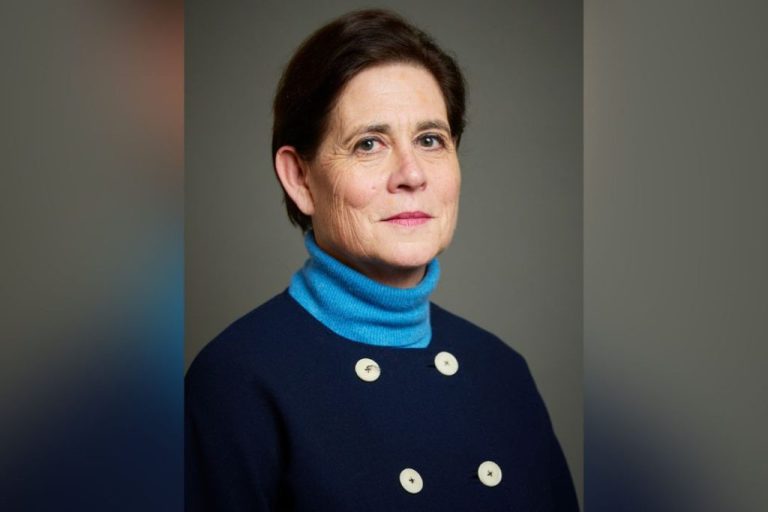An inquiry into the deaths of thousands of mental health inpatients has begun its next phase, focusing on evidence from healthcare experts, regulators and care providers.
The Lampard Inquiry, chaired by Baroness Kate Lampard, is investigating the circumstances of at least 2,000 mental health inpatient deaths in NHS and NHS-funded mental health inpatient care in Essex between January 2000 and the end of 2023.
“I would like those who experience mental health inpatient care to have confidence in the system”
Kate Lampard
Its first hearings, which took place in September, heard evidence from families of those who died.
On Monday, 28 April, Baroness Lampard opened the next set of hearings.
She said the hearings were “breaking new ground”, as the first UK public inquiry to investigate mental health care, and that “those who have suffered loss and those who have sadly died will always be at the heart of this inquiry”.
Baroness Lampard told the inquiry that she wished to, as had been established in the inquiry’s terms of reference, focus on “systemic issues” relating to inpatient care in Essex.
“We are investigating the big critical concerns about what went wrong, spanning across almost a quarter of a century,” she said.
“The inquiry will dive down into these systemic issues with increasing focus and detail until we have enough evidence, information and understanding to satisfy ourselves about what really happened and why.”
Baroness Lampard outlined the evidence the inquiry is due to receive from medical experts, healthcare providers, regulators and other organisations.
This evidence, she said, will explore “what good mental healthcare should have been” during the 24-year period, the use of technology, evidence about ligatures and absconding of patients and regulation and investigation procedures.
As well as this, the inquiry will explore suicide prevention, compassion fatigue among healthcare staff, detention under the Mental Health Act, and clinicians balancing risk management and therapy.
“I would like those who experience mental health inpatient care to have confidence in the system, confidence that they will receive appropriate and therapeutic care, confidence that they will be treated with empathy and respect and that they will be safe,” Baroness Lampard added.
“That was not always the case in Essex.”

Nicholas Griffin
Following the chair’s introduction, counsel to the inquiry Nicholas Griffin KC gave his opening statement.
Griffin gave an overview of the work the inquiry had already completed, the gathering of evidence from families, NHS trusts and other providers and the creation of a “recommendations and implementation forum”, to ensure the inquiry is able to enact the change it sought to.
In this speech, Mr Griffin said the number of deaths which fall into the 23-year-long time period is still not known, but acknowledged “the interest” from the public in knowing this number and said work to understand the true number was ongoing.
He also outlined the healthcare professionals who have been assisting in the scrutiny of evidence, or giving evidence themselves.
Among those were retired mental health nurse Mick O’Driscoll, who was unveiled earlier this year as an independent assessor, and former nurse leader Maria Nelligan.
Ms Nelligan, until her retirement last year, worked as interim executive director of clinical transformation at Greater Manchester Mental Health NHS Foundation Trust, having previously served as chief nurse and quality officer at Lancashire and South Cumbria NHS Foundation Trust.
The experienced former mental health nursing leader has drafted a report which will form part of the hearing process.
Mr Griffin explained that part of the evidence to be given by Ms Nelligan, alongside consultant psychiatrist Dr Ian Davidson, will “capture the practical considerations of providing mental health inpatient care”, from the workforce’s perspective.
The barrister said this expert evidence would help explain the balance which clinicians have to strike between reducing the risk of harm a patient faces and therapeutic interventions used to improve their clinical condition.
Further, it will look at the impact of registered nurses having less time to complete interventions with patients across the period covered by the inquiry, the impact of a shortage of registered nurses and the challenges of using a complex array of IT systems.
Mr Griffin also said that evidence will be heard from regulators, including the Nursing and Midwifery Council and Care Quality Commission.
He explained that the inquiry sought to investigate concerns that providers were not monitoring and acting on coroners’ prevention of future death reports, and how this might point to a “gap” in the regulation of mental health inpatient care.
Other issues Mr Griffin said would be on the agenda throughout the inquiry included the use of potentially intrusive monitoring software, the placement of inpatients outside of their county of residence due to a lack of bed spaces, and mental health inpatient deaths in Essex as recent as earlier this month (April 2025).
“This is just the beginning,” he said. “The inquiry continues to meet with its family core participants, and I’d like to end with the words of two people I met last week [who] spoke courageously and compellingly about pain, hope and change.
“Pain in the loss of family members they adored, and pain afterwards, in their words when they were treated disgracefully, brushed under the carpet and when they and their loved ones were shown an utter lack of respect.
“Hope, now, in the knowledge that they are not alone and that they are being listened to hope too, that their loss has not been in vain, and that others will not need to go through what they have, and change that will spring from hope; real and lasting change in honour of those who died.”
The inquiry continues.

